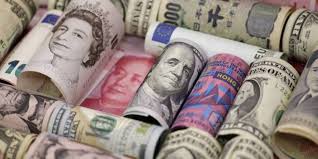By Odunewu Segun
Financial experts have said the floating of the naira is likely to push inflation north of 20 percent in the second half of the year, meaning authorities will need to ramp up interest rates if they want to lure back foreign money to bond markets.
“Right now you have negative real interest rates, so investors will not be enamoured with buying Nigerian bonds given where inflation is or where it is headed,” said Kevin Daly at Aberdeen Asset Management. “You need (a yield) somewhere between 15-20 percent to make this attractive.”
Recall that foreigners held $5.4 billion of Nigerian bonds in September 2013 but dumped most of them after the country was ejected last year from JPMorgan’s GBI-EM index – the most widely used emerging debt benchmark.
But the bond market’s size, liquidity and turnover all made it attractive to foreign investors, said Samir Gadio, Head of Africa Strategy FICC Research at Standard Chartered Bank, noting that Lagos’ $150 million daily turnover was next only to South Africa’s on the continent.
“It will be at least 12 months before we see any green shoots,” said Yvonne Mhango, Sub-Saharan Africa Economist at Renaissance Capital in Johannesburg. “The pain has to cut in full through the economy.”
An average naira rate of 270 per dollar this year implies a fall in Nigeria’s dollar GDP to $400 billion from $481 billion in 2015, Renaissance Capital estimates.
All this is set to hit the local population and firms’ hard, but foreign companies operating in Nigeria have also suffered. Brewer Heineken for instance reported that consumers had been shifting to cheaper brands.
ALSO SEE: CBN endorses Wema Bank as foreign exchange primary dealer
“Naira devaluation will lead to a consumer recession, a collapse in profits in companies,” said Robert Marshall-Lee, investment director at Newton Investment Management.
While Marshall-Lee predicts an “ugly market” for the next couple of years, he says stronger companies such as Guinness Nigeria, Nigerian Breweries or lenders Zenith Bank and Guaranty Trust Bank will probably weather the storm.
“When we see the market pricing the new reality and the stocks de-rate to reflect the new profit base, we will let that shake out happen. It might well over-correct which will give us an opportunity to buy.”
While investors welcomed the float of the naira by the Central Bank of Nigeria on Monday as the right first step, most plan to watch Nigeria from the sidelines anticipating more pain in store, National Daily has gathered.
“It is positive, it is a more credible and flexible exchange rate regime in the long-run, you will see an external rebalancing of the economy, a fiscal adjustment and so on,” said Jonas David, emerging market specialist at UBS Wealth Management in Zurich.

 Entertainment5 days ago
Entertainment5 days ago
 Health1 week ago
Health1 week ago
 Health4 days ago
Health4 days ago
 Football1 week ago
Football1 week ago
 Football1 week ago
Football1 week ago
 Crime4 days ago
Crime4 days ago
 Crime1 week ago
Crime1 week ago
 Education6 days ago
Education6 days ago













